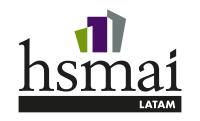Let's get down to business: Adopting an integrated strategy increases efficiency in group marketing, fosters cross-departmental collaboration, and improves profitability.
The merger of sales, marketing, and revenue management represents a profound change in the commercial landscape of many hotels.
Historically, these departments operated independently: revenue managers focused on optimizing room rates, while sales teams focused on attracting groups and expanding markets.
Gradually, data-driven decision-making in group pricing is beginning to integrate internal information (such as past performance and confirmed bookings) with external market insights (such as current demand indicators and price fluctuations). By synthesizing this data, revenue managers provide sales teams with a holistic view of the dynamics influencing group pricing.
Faster responses in group sales: a key to success
Speed is key when it comes to capturing group business.
Studies show that the first hotel to respond to a group request is 73% more likely to secure the reservation. This statistic illustrates the critical importance of swift response times from sales teams.
Simplifying the internal and external sales process
The group sales process encompasses two aspects: internal and external speed.
Internally, the team must work closely with revenue managers to gather key data and confirm rates. Externally, it's essential to quickly present a structured quote to the client.
To improve internal speed, it's key to foster open lines of communication between sales and revenue management. This includes providing sales teams with real-time access to group rate data, space availability, and potential food and beverage (F&B) minimums.
The power of displacement analysis in group sales
The use of displacement analysis allows for an accurate assessment of the profitability of group sales. This analytical approach measures the impact of accepting a group on other potential revenue sources, such as transient bookings, thus allowing hotels to make informed decisions about accepting or rejecting a booking.
Improving the customer experience with comprehensive proposals
A comprehensive proposal goes beyond simply listing prices and availability; it must address the customer's specific needs and provide clear answers to their questions.
For example, suggesting alternative dates and rates can be invaluable in helping guests adjust their schedule and reduce costs. This approach not only increases guest satisfaction but also positions the hotel as a proactive and attentive partner.
Building a culture of collaboration between Sales and Revenue Management
Synchronization between sales and revenue management is key to success in group sales. Revenue managers and sales teams must work together to forecast and set goals, ensuring that each group sale aligns with the property's financial goals.
Sales teams can benefit from participating in revenue management meetings, where they can gain valuable insights into projected demand and pricing strategies.
Fostering a collaborative culture helps avoid potential conflicts that can arise when sales teams pursue opportunities that don't align with revenue goals.
Conclusion
The strategic integration of Sales and Revenue Management marks the beginning of a new era in group marketing within the hospitality industry. By leveraging data, strengthening teamwork, and adopting technology, hotels can offer faster and more accurate proposals, improving group conversions. As the industry evolves, adopting these practices will be essential to sustaining a strong and profitable group sales strategy.



